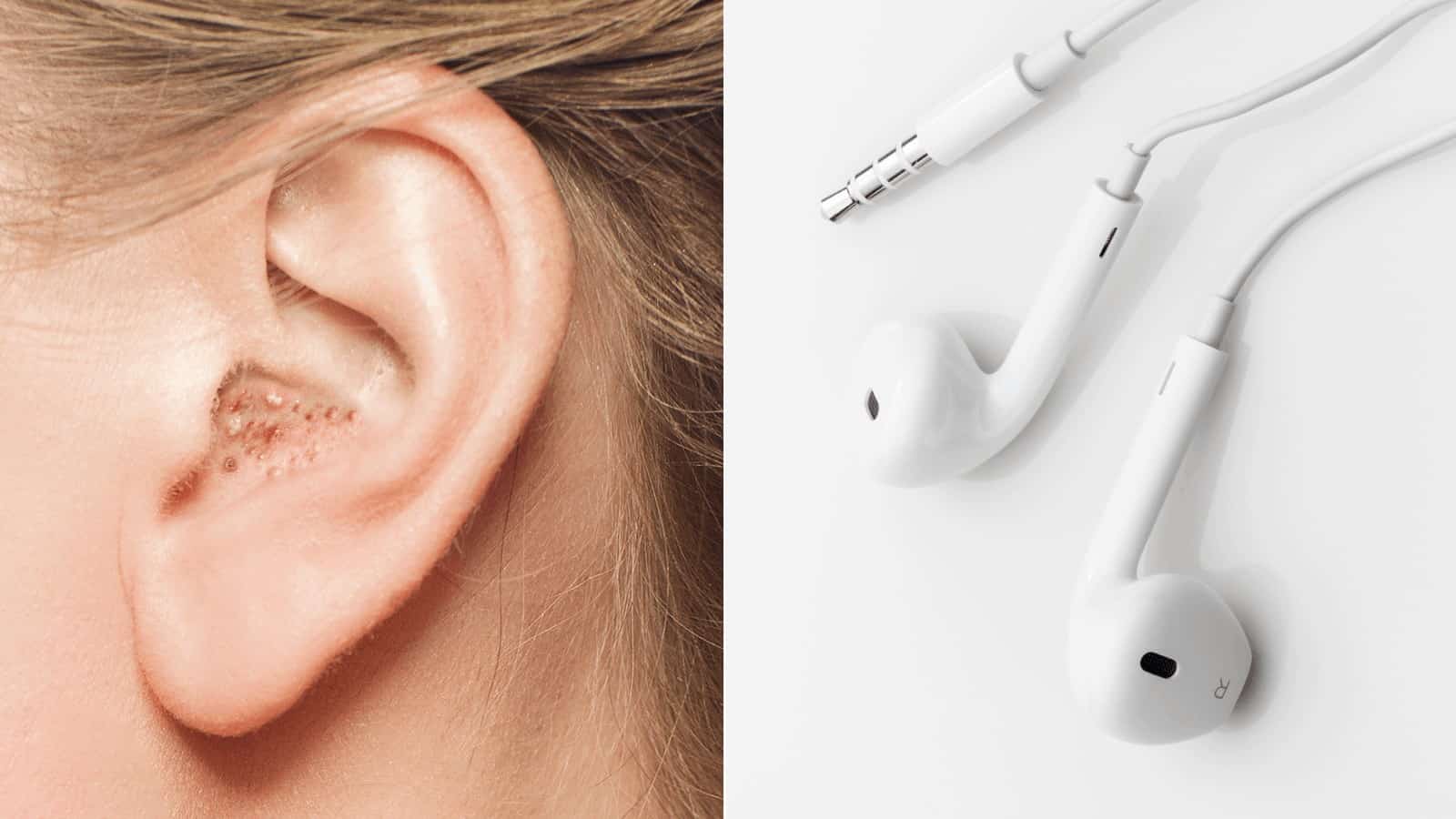Headphones can be convenient, no question. They’re great for working out, relaxing – or signaling to that annoying co-worker that you’re unavailable. But headphones can also be unhealthy, even dangerous. Cosmetically, if you wear headphones too often, it can cause skin conditions such as acne.
More serious is the possibly damaging effect that headphones have on hearing. Studies show that listening to headphones too often at loud volumes can lead to permanent hearing loss.
Here, we will discuss some of the adverse effects of using headphones for too long. We’ll close by talking about what we can do to prevent these things from occurring.
Five Potential Problems if You Wear Headphones Too Long

1. Your Hearing Ability May Suffer
Wearing headphones or earbuds for too long or listening to music too loudly can damage your hearing. Consider that fully-throttled motorcycles and chainsaws generate approximately 100 decibels (units that measure the intensity of a sound), which can damage hearing in as little as 30 minutes.
Someone listening to music with earbuds, at just 70% of the maximum volume is getting about 85 decibels.
Called noise-induced hearing loss (NIHL), hearing loss from headphones and earbuds is indeed a common thing.
Fortunately, NIHL is entirely preventable so long as preventative measures are taken. A good rule to follow is the 60/60 rule: listen to headphones at no more than 60% of the max volume for no more than sixty minutes at any time.
2. You May Get an Ear Infection
Rule numero uno: do not share headphones – ever. This is one of the easiest ways to transfer infection-causing bacteria. However, sharing headphones isn’t the only way to acquire an ear infection. Earplugs and headphones increase the temperature of the ear canal, which may induce skin abrasion and introduce harmful bacteria.
If you’re buying a pair of headphones from someone, ensure you disinfect them before wearing them. It is also a good idea to regularly clean your headphones, even if they’ve never been used by anyone else. This will keep the headphones and – most importantly – your ears clean.
3. Your Inattention May Be Dangerous
Many may love popping in the headphones while working out. The downside to doing this regularly is that you may pay less attention to your external environment – a good thing when you’re at the computer, a bad thing when someone is blaring their horn in a desperate attempt to get you to move!
To be safe (and courteous), consider pausing the music or turning it down if you wear headphones when you’re out on a bike ride or walk.
4. You Could Develop Vertigo
Vertigo is “a sensation of feeling off balance,” often accompanied by symptoms such as dizziness, nausea, and vomiting. Described as “… an illusion of movement that is not there,” vertigo is a condition of the inner ear, which may surface from infections or diseases of the ear. As excessive headphone usage is tied to vertigo-causing conditions, misuse of headphones may indeed cause vertigo.
5. You’re Exposed to Radiation
If you’re using a wireless (“Bluetooth”) headset, you are exposing your body to radiation. While research is inconclusive regarding these low-frequency radiations on bodily health, the idea that we’re possibly subjecting our bodies to harmful radiation is troubling. In a 2018 study, the World Health Organization (WHO) found that radiofrequency (RF) radiation produces biological effects that mirror carcinogens in male rats. These findings have led to subsequent studies on what effects, if any, RF radiation has on humans.
Final Thoughts: Headphone Safety
The general consensus among the health community is that headphone and earbud use is probably safe with the proper precautions. Here are a few ideas to make your listening experience as safe as possible:
- Always buy and wear new, out-of-the-box headphones. (Do not buy them secondhand.)
- Listen at less than 80 percent maximum volume for no more than 90 minutes at a time.
- When using earbuds, ensure that the plastic components fit snugly.
- Do not force earbuds into the ear canal.
- Wear noise-cancelling headphones.
- Do not listen to music at loud volumes while walking or driving.
- Seek medical care if you experience dizziness or trouble maintaining balance.

















